Government
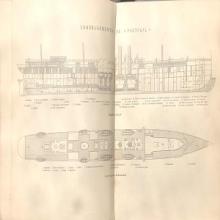
Short Teaching Module: Connecting the French Empire
For a long time, historians tended to study colonial empires of the 19th and 20th centuries one colony at a time, or through the relationship of one colony to its metropole.
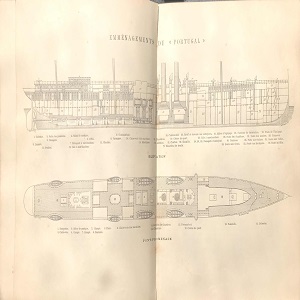
Ship Plan of a Late-19th Century Steamship
This ship plan from the late-19th century offers a partial view of spatial arrangements within a Messageries steamship.

Shipping Company Route Map from 1889
This route-map of the Messageries Maritimes shipping company displays the main routes connecting metropolitan France to its empire in the Indo-Pacific. While the map dates to 1889, these routes retained their basic structure through the 1950s.

Laws of Manu
The Manu-smriti, or Laws of Manu, are of the most authoritative codes of Hinduism in India, dating back to approximately 1
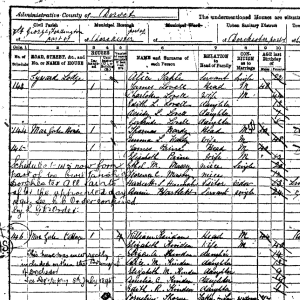
Census of England, 1891
The census of the United Kingdom was the tenth census and was taken on April 5, 1891.
Mandate for Palestine
The Mandate for Palestine was a legal document that established the United Kingdom as a Mandatory in charge of Palestine and Tran
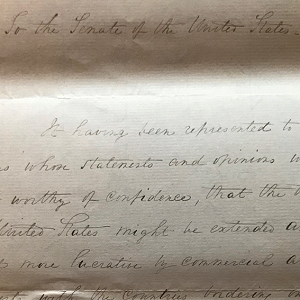
A letter from U.S. President Andrew Jackson to the Senate Dated Washington, May 30, 1834
A letter from President Andrew Jackson to the Senate where the President discusses the possibility of extending US trade. Jackson was particularly interested in the potential trade connections with areas around the Indian Ocean.
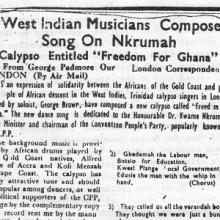
Short Teaching Module: Music and Decolonization in the Black Atlantic
The decades after World War II witnessed rapid decolonization of European empires and a dramatic increase in independence movements for colonized peoples.
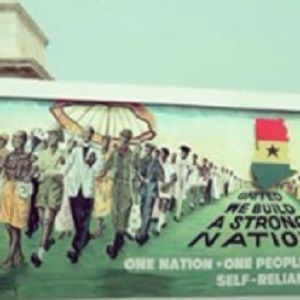
Lord Kitchener, “Birth of Ghana,” 1957
On March 6, 1957, the Gold Coast Colony declared its independence from Britain and became Ghana, the first West African nation to break from European colonial rule.
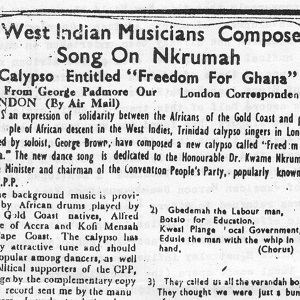
George Browne “Freedom for Ghana”
While living in London in the early 1950s, the Trinidadian calypsonian George Browne (whose stage name was Young Tiger) penned a calypso called “Freedom for Ghana” that caught the attention of George Padmore, the Trinidadian pan-Africanist intellectual and journalist, who wrote about it in the Gh